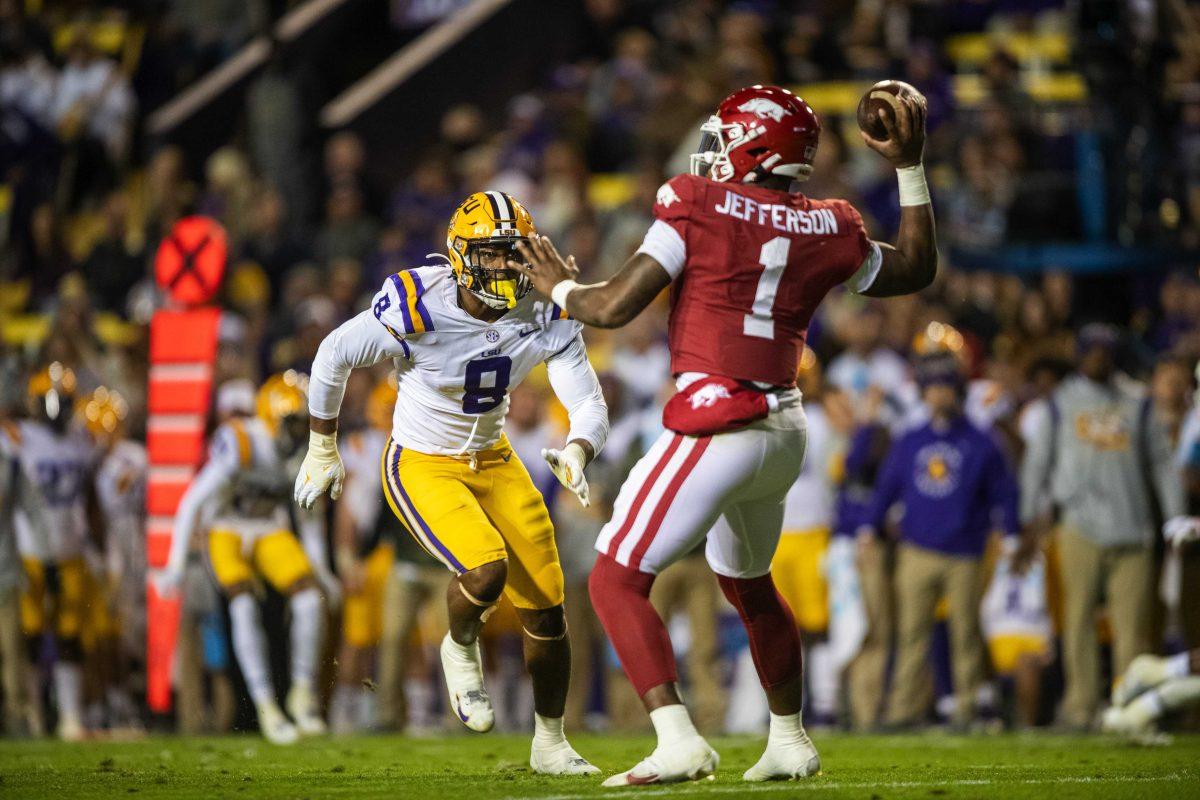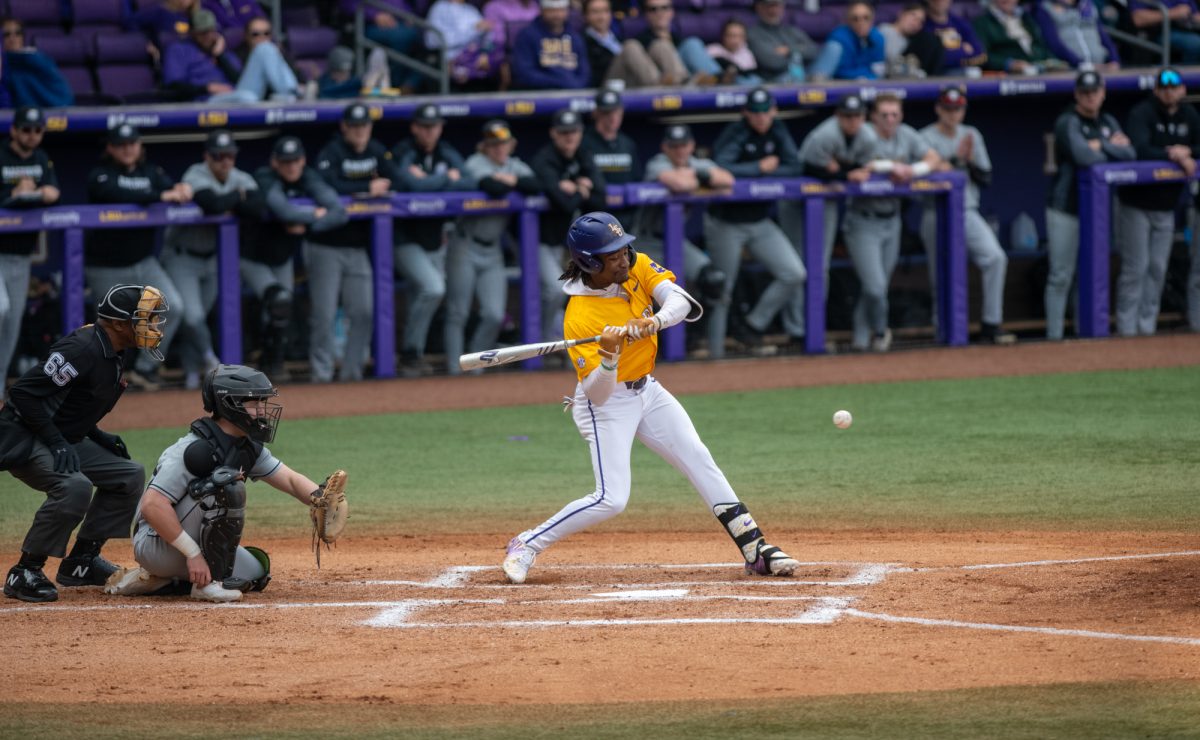Though the 2010s were unkind to the Arkansas Razorbacks, the early goings of the decade painted a much different picture than what ultimately came out.
Then Head Coach Bobby Petrino had them on an upward trajectory that hinted at the possibility of a championship and in 2011, that opportunity was right in front of them.
Arkansas went from going bowless in his first season to a Sugar Bowl appearance just two seasons later. Through considerable offensive improvements that produced one of the most potent passing attacks in the country and a defense that could carry its own weight, this team went from a middle-of-the-pack team in the SEC West to one of its most dangerous contenders.
It went into the 2011 season coming off a close loss to Terrell Pryor-led Ohio State in the Sugar Bowl and its second 10-win season since 1989. Its offense placed second in efficiency and points per game behind Auburn, the eventual national champion, and it finished the season on a six-game win streak, a tear that featured three ranked teams.
That included a notable win over No. 6 LSU, a win that knocked the Tigers out of the Sugar Bowl. They were one of the best teams in the country, headlined by a secondary featuring Patrick Peterson and Tyrann Mathieu at cornerback, and yet Ryan Mallett and the Razorback offense torched them for over 300 passing yards and 31 points.
Each team built on its success from 2010, with their upcoming matchup being even more anticipated than the last.
LSU had its most memorable opening performance of the 20th century, dominating a No. 3 Oregon team fresh off a national championship appearance. It had the toughest schedule in the country but made it look easy, going into its No. 1 vs. No. 2 matchup with Alabama sporting six ranked wins, four of which were decided by four scores of more.
It defeated Alabama in the class 9-6 game, leaving Arkansas and an SEC title as the only things that remained in the way of LSU’s second national title appearance under Les Miles. But despite its pure dominance throughout the season, revenge for what occurred in 2010 would be difficult to attain.
Petrino picked up where he left off, improving on what had previously been Arkansas’ best season in recent memory. Early struggles indicated the Razorbacks would take a step back, as they followed up a close game against Troy with a blowout loss to Alabama. But that didn’t last long, as back-to-back ranked wins over Texas A&M and Auburn alleviated the doubt surrounding the team.
It had some close games against Ole Miss and Vanderbilt, but by the time it reached its last regular-season matchup against LSU, it had pulled off seven straight wins and climbed all the way to No. 3 in the AP Poll. It was very much in the mix to make the national championship, but it would have to go through the perceived best team in the country to get there.
Entering the game, the SEC occupied the top-three spots in the country, with Alabama finding its way back to the No. 2 spot after Oklahoma State was upset by Iowa State. With that came endless speculation about which teams would make the championship based on each possible outcome. Notably, an Arkansas win would create a three-way tie for first in the division, with the tiebreaker favoring Alabama if it did what it was expected to against Auburn.
That would have practically guaranteed the Razorbacks a championship spot, as they wouldn’t have to worry about dropping in the rankings with an SEC championship loss. Basically, the stakes for this game, higher than they had been in a very long time for Arkansas.
And through the first few minutes of the second quarter, it looked poised for a historic win. A strong touchdown drive and defensive touchdown had the Razorbacks up 14-0 with 12 minutes to go in the first half and LSU wasn’t exactly accustomed to making comebacks.
Despite consistently putting up 40 points throughout the season, offense was not the team’s strong suit, especially when it came to passing. That’s not an ideal weakness to have when you’re trying to make a comeback but fortunately for LSU, it wouldn’t have to worry about making one.
After responding to Arkansas’ second score with a solid, seven-minute touchdown drive to narrow the gap, it would hold the Razorbacks to a three-and-out, putting LSU’s most dynamic player in recent history in a position to impact the game.
Mathieu received the ball on their own eight-yard line, immediately made a move to split four opposing defenders and didn’t encounter another defender until he was cruising into the endzone. Three offensive plays for Arkansas later and he another impactful play, stripping the ball from Razorback running back Dennis Johnson in LSU territory to give the Tigers the ball back with two minutes to go in the half.
The Tiger offense clicked as Jordan Jefferson was able to find Reuban Randle and Russell Sheppard multiple times on the drive on the way to a quick touchdown. LSU would enter the half with a 21-14 lead and would not look back, outscoring Arkansas 20-3 in the second half as the normally potent Razorback offense managed less sustained drives than turnovers in the half.
Mathieu managed eight solo tackles, two forced fumbles, a fumble recovery and a punt return touchdown on the day, building on what had already been a historic season, which had him as a Heisman finalist as a defensive player, one of the biggest rarities in college football.
The Tigers would go on to lose in the national championship, crushing the potential of having another team sport an argument for the best team of all time. Arkansas would finish the season with a strong win over Kansas State in the Cotton Bowl, the same bowl game the Razorbacks sent the Tigers to in 2010. Despite pulling its best win total since 1977 with 11, Head Coach Bobby Petrino would be fired in the offseason for a non-football related incident involving a motorcycle and his mistress.
The Razorbacks have yet to match that success since, but Sam Pittman seems to have them on a path to similar relevancy. Maybe someday the Battle for the Golden Root with pose the same stakes it did just over a decade ago.







